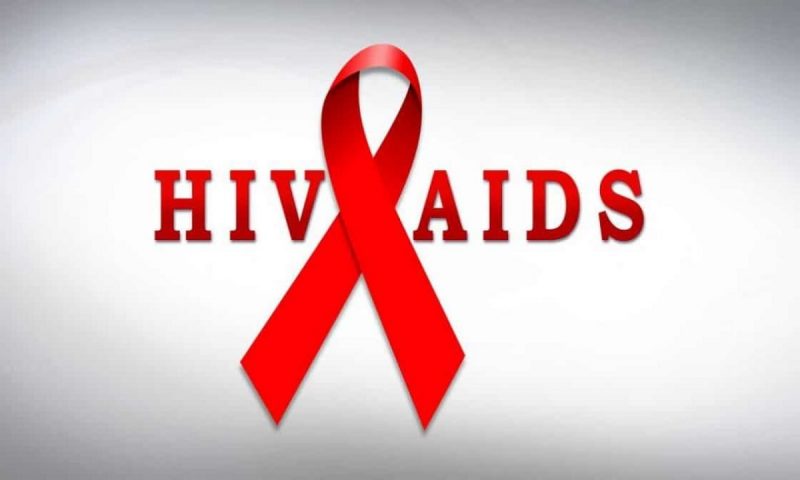Health
Monkeypox Cases Rise, Spread To 26 States, FCT

Cases of monkeypox have spread to 26 states and the Federal Capital Territory (FCT), raising fears among citizens.
This is just as experts have called for increased efforts by all stakeholders towards curbing the situation. Monkeypox is a viral disease transmitted from animals to humans and from humans to humans.
From January to August this year, 473 suspected cases and 172 confirmed cases have been recorded.
An analysis of situation reports from the Nigeria Centre for Disease Control (NCDC) shows that the number of cases recorded in the country so far this year is higher than those recorded each in 2017, 2018, 2019, 2020 and 2021. In the whole of 2017, there were 88 confirmed cases, 49 in 2018, 47 in 2019, 8 in 2020 and 34 in 2021.
Since the beginning of this year, several countries have also witnessed an unprecedented outbreak of monkeypox, prompting the Director-General of the World Health Organization, Tedros Adhanom Gebreyesus, to, July 23, declared monkeypox a public health emergency of international concern.
Spike in cases across states
The disease has been spreading across states and the FCT over the last few months.
As of May 29, a total of 21 confirmed cases with one death were reported from nine states and the FCT. The cases rose to 36 and spread to 15 states and the FCT by June 12. Less than two weeks later, the cases grew to 41. In the epidemiological week 25 alone (June 20 to 26 2022), there were 21 positive cases out of 42 suspected cases.
By July, the number of cases had hit 157 out of 413 suspected cases with the number of affected states also rising to 25 states and the FCT.
Between July 25 and 31, a total of 24 confirmed cases of monkeypox were recorded.
As of August 7, the disease had spread to 27 states and confirmed cases risen to 172 since the beginning of the year out of 473 suspected cases. The number of deaths had also risen to four with Delta, Lagos, Ondo and Akwa Ibom recording one case each.
The latest NCDC situation report showed that in the first week of August alone, 60 suspected cases were recorded from 10 states out of which 15 new confirmed cases were recorded.
The states that have recorded monkeypox cases since the beginning of the year are Lagos (20), Ondo (16), Adamawa (13), Rivers (13), Delta (12), Bayelsa (12), Edo (9), Nasarawa (9), Anambra (7), Imo (7), Plateau (6), Taraba (5).
Others are Kwara (5), Kano (5), Abia (4), Cross River (3), Borno (3), Oyo (3), Gombe (3), Katsina (2), Kogi (2), Ogun (2), Niger (1), Bauchi (1), Akwa Ibom (1) and Ebonyi (1) as well as FCT (7).
Experts’ views
An epidemiologist and microbiologist with the African Field Epidemiology Network, Dr Muhammad Shakir Balogun, stressed the need to quickly act to reduce the spread of monkeypox.
He advised Nigerians on precautionary measures: “To protect yourself, avoid close, skin-to-skin contact with people who have a rash that looks like monkeypox; don’t touch the rash of a person with monkeypox; don’t kiss, hug, cuddle or have sex with someone with monkeypox; avoid contact with objects and materials that a person with monkeypox has used; don’t share eating utensils or cups with a person with monkeypox; don’t handle or touch the bedding, towels, or clothing of a person with monkeypox.
“In addition, avoid contact with animals that can spread monkeypox virus, usually rodents and primates. Also, avoid sick or dead animals as well as bedding or other materials they’ve touched”.
According to him, though there are vaccines for monkeypox, they’re not widely available yet and “where they’re available, they’re given to people at high risk.”
A professor of Virology, Sunday Omilabu, urged the Federal Government to acquire smallpox vaccines to stem the tide of monkeypox.
In his interview with Arise TV, monitored by our correspondents, he said: “Government should negotiate for smallpox vaccine as other European countries are doing to prevent more cases of the virus.”
Director-General, NCDC, Dr Ifedayo Adetifa, said since the re-emergence of monekypox in 2017, the agency had made investments to increase surveillance, diagnostics, risk communications and research capacity despite limited resources.
“These investments, coupled with an awareness of the ongoing global outbreak, have increased Nigerians’ awareness of the disease leading to an increase in the number of monkeypox cases detected in Nigeria,” he said.
He commended state epidemiologists and local government area disease surveillance notification officers for facilitating the timely detection of monkeypox cases that might have been missed in other years. He enjoined Nigerians, particularly those with immunocompromised or underlying health conditions, to be aware of the symptoms of monkeypox and its associated risks.
He also advised the citizens to “promptly report to their nearest health facility if they or their relatives observe such symptoms including rash containing pus on the body surfaces such as the face, hands, soles of feet etc.”
On the fears over the spread of monkeypox, Adetifa, however, said no cause for alarm as the variant in circulation tends to resolve on its own spontaneously or without any specific treatment.
He said: “The monkeypox virus in circulation (clade IIa formerly known as the West African clade) is the same as before and has not changed in virulence. Research has shown that this variant is self-limiting.”
READ ALSO:
- Tinubu’ll win 2023 Presidency — Cleric predicts
- Police arrest eight suspects for killing APC chieftain in Osun
- Violence Escalating in Osun as Another NURTW, APC Chieftain is Shot, Taken Away
He said the NCDC-led national monkeypox Emergency Operations Centre continued to work with states to support ongoing monkeypox response activities in surveillance, risk communications, laboratory diagnostics, case management and infection prevention and control.
What to know about monkeypox
Animal-to-human transmission of Monkeypox may occur by direct contact with blood, body fluids, skin or mucosal lesions of infected animals such as monkeys, squirrels and rodents.
Symptoms include fever, body pain, weakness, sore throat and rashes on the face, palms, soles of the feet and other parts of the body.
Polymerase chain reaction (PCR) of lesions is the mainstay of monkeypox diagnosis. Swabs and scabs from skin lesions are sent to the designated reference laboratory in dry containers. Serum samples can also be taken; however, these often yield negative results due to the transient viraemia.
Lagos State Commissioner for Health, Professor Akin Abayomi, noted that there are two types of monkeypox virus: the West African and Central Africa variants.
According to him, infections in the current global outbreak are from the West African type and are less fatal; while the Central Africa variant is more fatal and confined to the Democratic Republic of Congo.
Director, Public Health, Edo State Ministry of Health, Stephenson Ojeifo, said the state had carried out contact tracing of about 200 persons who had contact with the positive cases and they were all declared negative after laboratory investigations.
He said the state had put in place a surveillance mechanism while also reactivating its health education unit to sensitise the public on the zoonotic disease.
Ojeifo said the patients were treated in the state’s isolation centres.
Some of the residents of the state, who spoke to Daily Trust, suggested that sensitisation programmes on monkeypox be taken to rural areas.
The Ebonyi State Commissioner for Health, Daniel Umezurike, said someone who tested positive to monkeypox recently had been moved to an isolation centre and was responding to treatment.
He said seven contacts and line listed individuals had been identified and were currently being followed up to avoid the spread of the virus.
“Active case search has been heightened across all the LGAs in the state to strengthen case finding.
“We’re also using this opportunity to appeal to Ebonyians to report to any nearest hospital in your area if they notice any symptoms like that of monkeypox,” he said.
Daily Trust
Health
Nigeria to Receive Breakthrough HIV Prevention Drug This Month – NACA

Nigeria to Receive Breakthrough HIV Prevention Drug This Month – NACA
Nigeria is set to receive Lenacapavir, a groundbreaking HIV prevention drug, in March 2026, the National Agency for the Control of AIDS (NACA) has announced.
The agency disclosed that regulatory approval has been granted by the National Agency for Food and Drug Administration and Control (NAFDAC), clearing the way for the drug’s introduction and nationwide rollout. The confirmation was contained in a statement issued on Monday by Toyin Aderibigbe, Head of Public Relations at NACA.
Lenacapavir, a long-acting injectable HIV prevention drug, has demonstrated 100 percent effectiveness in preventing HIV infection during advanced clinical trials. Unlike daily oral pre-exposure prophylaxis (PrEP) pills, the injectable medication is administered only twice a year, offering a more convenient and discreet prevention option.
NACA said the Federal Government has intensified preparations for the rollout of injectable PrEP in Nigeria, describing the initiative as a critical step toward reducing new HIV infections and strengthening national prevention strategies.
According to the agency, Lenacapavir will be made available at an affordable annual cost of about $40 per person, following voluntary licensing agreements with generic manufacturers. This pricing structure will apply across Nigeria and 119 other low- and middle-income countries, significantly expanding access to the drug.
READ ALSO:
- Iran Retaliates: Gulf States Allied With US Hit by Missiles, Drones
- Islamic Leader Warns Tinubu: State Police Could Be Used Against Opponents
- Daddy Freeze Warns Couples Over 40: ‘Avoid Moving Abroad, Especially US, UK’
“The Government of Nigeria is advancing preparations for the introduction and rollout of lenacapavir as pre-exposure prophylaxis (PrEP). This underscores our commitment to strengthen HIV prevention and accelerate progress toward epidemic control,” the statement said.
As part of readiness efforts, NACA revealed that landscape and preparedness assessments have been completed in 10 states — Akwa Ibom, Anambra, Benue, Cross River, Ebonyi, Gombe, Kano, Kwara, Lagos, and the Federal Capital Territory (FCT) — alongside regulatory clearance by NAFDAC.
Nigeria currently has an estimated 1.9 million people living with HIV, with a national prevalence rate of 1.3 percent among adults aged 15 to 49. In 2021, the country recorded 74,000 new HIV infections and 51,000 AIDS-related deaths, according to official data.
Women aged 15 to 49 are more than twice as likely as men to be living with HIV, while the South-South region bears the highest burden, with an HIV prevalence rate of 3.1 percent.
Health authorities say the arrival of Lenacapavir in Nigeria could mark a major turning point in HIV prevention, particularly for high-risk populations, as the country intensifies efforts to achieve long-term epidemic control.
Nigeria to Receive Breakthrough HIV Prevention Drug This Month – NACA
Health
Popular Brain Supplement Amino Acid May Reduce Longevity in Men

Popular Brain Supplement Amino Acid May Reduce Longevity in Men
A massive study of more than 270,000 people has revealed that higher blood levels of tyrosine, a common amino acid found in protein-rich foods and popular focus-boosting supplements, are associated with shorter life expectancy in men. Researchers suggest that men with elevated tyrosine levels could live nearly one year less on average than those with lower levels, sparking questions about the long-term health effects of both diet and supplements.
The study, led by scientists from the University of Hong Kong and the University of Georgia, analyzed health, genetic, and biochemical data from participants in the UK Biobank, one of the largest population-based studies in the world. The researchers focused on tyrosine and phenylalanine, two amino acids essential to metabolism and neurotransmitter production, including dopamine, which plays a key role in mood, motivation, and cognitive performance.
READ ALSO:
- Amnesty Exposes Alleged Torture, Extortion, Deaths at Imo Police Tiger Base
- REVEALED: How Dispute Over VIP Police Protection, State Policing Led to Egbetokun’s Exit as IGP
- Super Eagles Goalkeeper Suspended Over Match-Fixing Allegation
Using observational and genetic modeling techniques, the researchers found that while phenylalanine had no consistent effect on lifespan, tyrosine showed a clear and potentially causal link to reduced life expectancy in men. No similar association was observed in women, suggesting that biological and hormonal differences may influence how tyrosine affects aging in men versus women.
Scientists are still investigating why tyrosine might impact longevity. One possible explanation is insulin resistance, a risk factor for age-related diseases, which tyrosine may influence. Another theory involves stress-related neurotransmitters and hormonal pathways that may react differently in men, potentially explaining why the effect was sex-specific.
Although the study did not directly test tyrosine supplements, it raises questions about their long-term safety, particularly for men who may already have high systemic levels. Nutrition experts advise moderation and recommend monitoring protein intake. Common dietary sources of tyrosine include beef, pork, lamb, chicken, turkey, salmon, tuna, mackerel, shrimp, lobster, eggs, dairy, soy, whole grains, nuts, and seeds.
The researchers emphasized the need for further studies to confirm these findings, understand the mechanisms linking tyrosine to male longevity, and explore whether dietary or lifestyle interventions could safely reduce tyrosine levels and promote healthy aging.
Popular Brain Supplement Amino Acid May Reduce Longevity in Men
Health
Labour Unions Barricade NAFDAC Lagos Office Over Sachet Alcohol Ban

Labour Unions Barricade NAFDAC Lagos Office Over Sachet Alcohol Ban
Hundreds of workers and union members under the Nigeria Labour Congress (NLC), Trade Union Congress (TUC), and Food, Beverage and Tobacco Senior Staff Association (FOBTOB) barricaded the NAFDAC office in Isolo, Lagos on Thursday, marking the seventh consecutive day of protests over the enforcement of the sachet alcohol ban. The demonstration disrupted normal operations, with protesters blocking access to the NAFDAC premises from early morning, chanting slogans such as “No work for us, no work for you”, and demanding the immediate reopening of sealed factories, depots, and warehouses nationwide. Police officers intervened mid-morning to restore access, but union leaders vowed to continue their action until all demands are met.
 The protest stems from NAFDAC’s enforcement of the ban on sachet alcohol and 10cl PET bottled products, which has led to the closure of several indigenous factories, depots, and warehouses. Union leaders argue that entire facilities — including those producing lawful products — are being shut down unnecessarily, a move they describe as “calculated economic suffocation.” Anthony Oyaga, TUC Secretary, stated: “Across the country, indigenous manufacturing companies are being sealed. Factories are being shut down. Depots are being closed. Warehouses are being locked — including those containing other lawful products not connected to the targeted items.” Protesters warned that prolonged shutdowns are threatening livelihoods, affecting not only factory workers but also transporters, suppliers, distributors, market women, artisans, and logistics personnel. They stressed that such measures could push vulnerable youths into poverty, fuel social vices, and even pose national security risks if the situation persists.
The protest stems from NAFDAC’s enforcement of the ban on sachet alcohol and 10cl PET bottled products, which has led to the closure of several indigenous factories, depots, and warehouses. Union leaders argue that entire facilities — including those producing lawful products — are being shut down unnecessarily, a move they describe as “calculated economic suffocation.” Anthony Oyaga, TUC Secretary, stated: “Across the country, indigenous manufacturing companies are being sealed. Factories are being shut down. Depots are being closed. Warehouses are being locked — including those containing other lawful products not connected to the targeted items.” Protesters warned that prolonged shutdowns are threatening livelihoods, affecting not only factory workers but also transporters, suppliers, distributors, market women, artisans, and logistics personnel. They stressed that such measures could push vulnerable youths into poverty, fuel social vices, and even pose national security risks if the situation persists.
READ ALSO:
- Atiku, Other Opposition Leaders Reject Tinubu‑Signed Electoral Act 2026
- Kaduna Residents Storm Govt House, Demand Probe of El‑Rufai
- Fatal Keffi Road Accident: Driver Avoiding FRSC Patrol Causes 6 Deaths
Union leaders, including FOBTOB National Secretary Jeffery Igein, emphasised that the protests would continue until the government addresses the economic fallout of factory closures and replaces strict enforcement with targeted regulatory measures. “We are not criminals. We are workers. We are producers. We are parents. We are taxpayers. We are Nigerians,” Igein said, stressing that the protests are peaceful and lawful.
NAFDAC, led by Prof. Mojisola Adeyeye, has maintained that it has not received any official directive from the federal government to suspend enforcement. The Federal Ministry of Health and Social Welfare also affirmed that NAFDAC has the exclusive legal mandate to regulate food and drug products, including sachet alcohol. Despite this, union leaders continue to demand dialogue with policymakers and the reopening of factories, depots, and warehouses, arguing that blanket enforcement has caused unnecessary economic hardship.
The protests underscore ongoing tension in Nigeria between public health policies and economic livelihoods, highlighting the delicate balance regulators face in enforcing bans while preserving jobs and sustaining industries. Workers insist that they will maintain pressure until what they call economic strangulation is reversed and structured regulation replaces punitive closures.
Labour Unions Barricade NAFDAC Lagos Office Over Sachet Alcohol Ban
-

 International2 days ago
International2 days agoAyatollah Ali Khamenei, Iran’s Supreme Leader, Dies After U.S.–Israeli Strikes
-

 International2 days ago
International2 days agoIran: US, Israel launch another strikes, Commander, Defence leader, five other top officials killed
-

 International3 days ago
International3 days agoMiddle East on Edge as Iran Retaliates Against Israel, U.S Bases
-

 International2 days ago
International2 days agoKamala Harris Slams Trump for Dragging U.S. Into ‘Unwanted War’ in Iran Conflict
-

 metro2 days ago
metro2 days agoHajj, Umrah Are for Muslims Only – Scholar Urges NAHCON to Tighten Screening
-

 International1 day ago
International1 day agoIran Retaliates: Gulf States Allied With US Hit by Missiles, Drones
-

 International1 day ago
International1 day agoSaudi Arabia Denies Lobbying US to Strike Iran as Gulf States Respond to Escalation
-

 International2 days ago
International2 days agoBREAKING: Iran Forms Three-Member Leadership Council to Steer Country After Khamenei’s Death















